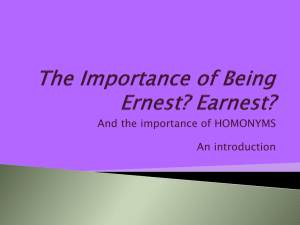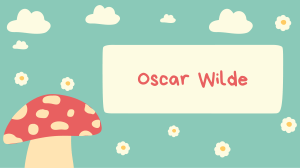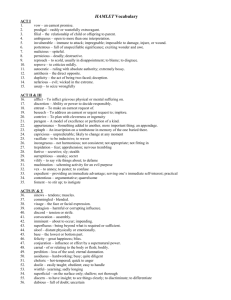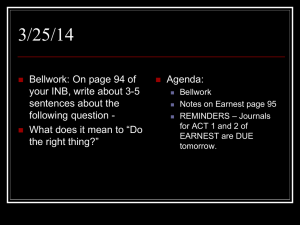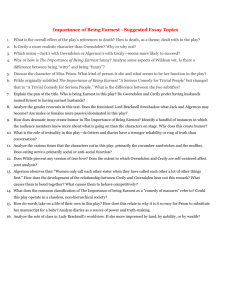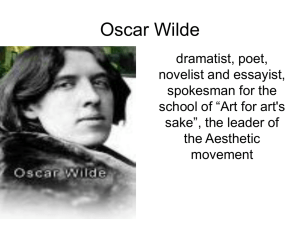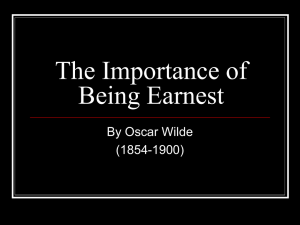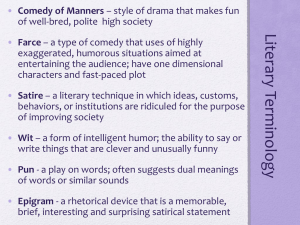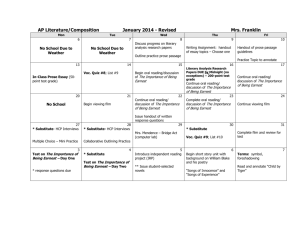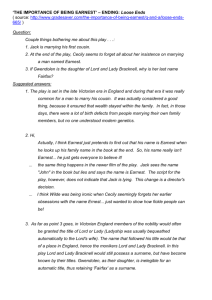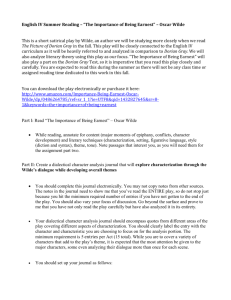The Importance of Being Earnest Discussion Questions Part I: For
advertisement
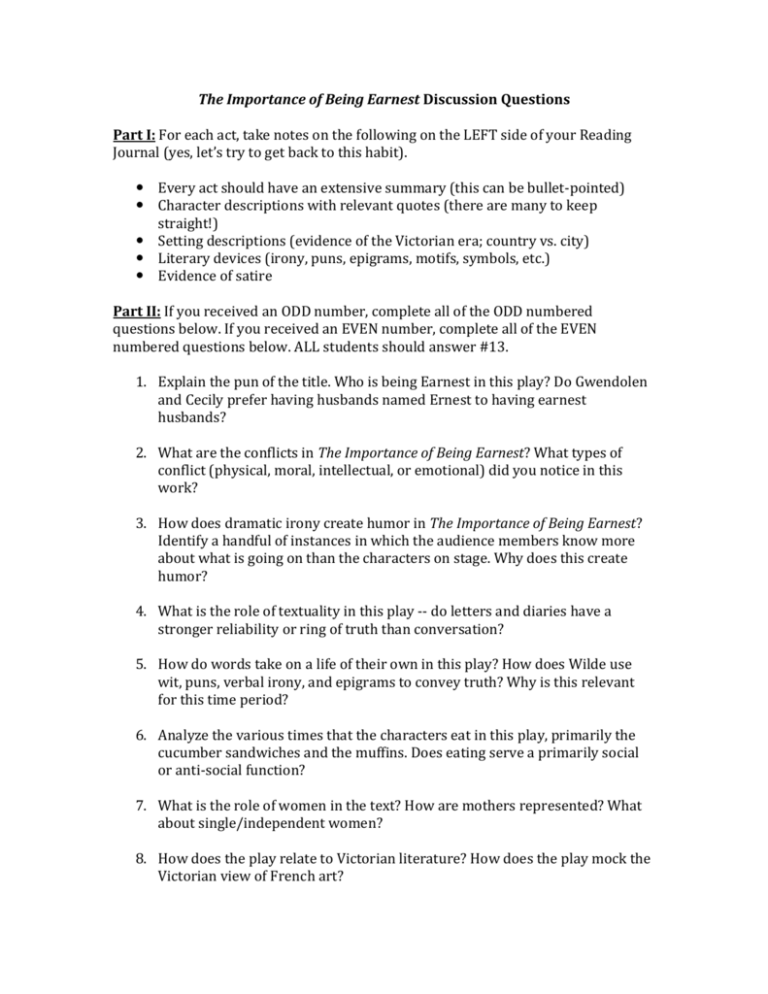
The Importance of Being Earnest Discussion Questions Part I: For each act, take notes on the following on the LEFT side of your Reading Journal (yes, let’s try to get back to this habit). Every act should have an extensive summary (this can be bullet-pointed) Character descriptions with relevant quotes (there are many to keep straight!) Setting descriptions (evidence of the Victorian era; country vs. city) Literary devices (irony, puns, epigrams, motifs, symbols, etc.) Evidence of satire Part II: If you received an ODD number, complete all of the ODD numbered questions below. If you received an EVEN number, complete all of the EVEN numbered questions below. ALL students should answer #13. 1. Explain the pun of the title. Who is being Earnest in this play? Do Gwendolen and Cecily prefer having husbands named Ernest to having earnest husbands? 2. What are the conflicts in The Importance of Being Earnest? What types of conflict (physical, moral, intellectual, or emotional) did you notice in this work? 3. How does dramatic irony create humor in The Importance of Being Earnest? Identify a handful of instances in which the audience members know more about what is going on than the characters on stage. Why does this create humor? 4. What is the role of textuality in this play -- do letters and diaries have a stronger reliability or ring of truth than conversation? 5. How do words take on a life of their own in this play? How does Wilde use wit, puns, verbal irony, and epigrams to convey truth? Why is this relevant for this time period? 6. Analyze the various times that the characters eat in this play, primarily the cucumber sandwiches and the muffins. Does eating serve a primarily social or anti-social function? 7. What is the role of women in the text? How are mothers represented? What about single/independent women? 8. How does the play relate to Victorian literature? How does the play mock the Victorian view of French art? 9. Describe at least one theme in the play (make sure it is a complete statement). How is this created in the play? 10. Describe at least one consistent motif in the play. How is it used to convey meaning? 11. Describe at least three different views of marriage presented in the play. What is Wilde suggesting through these differing perspectives? 12. Describe the end of the play. Why do you think Wilde ended it this way? What effect does it have? 13. EVERYONE ANSWER: In what way is this play a satire? Explain thoroughly.
